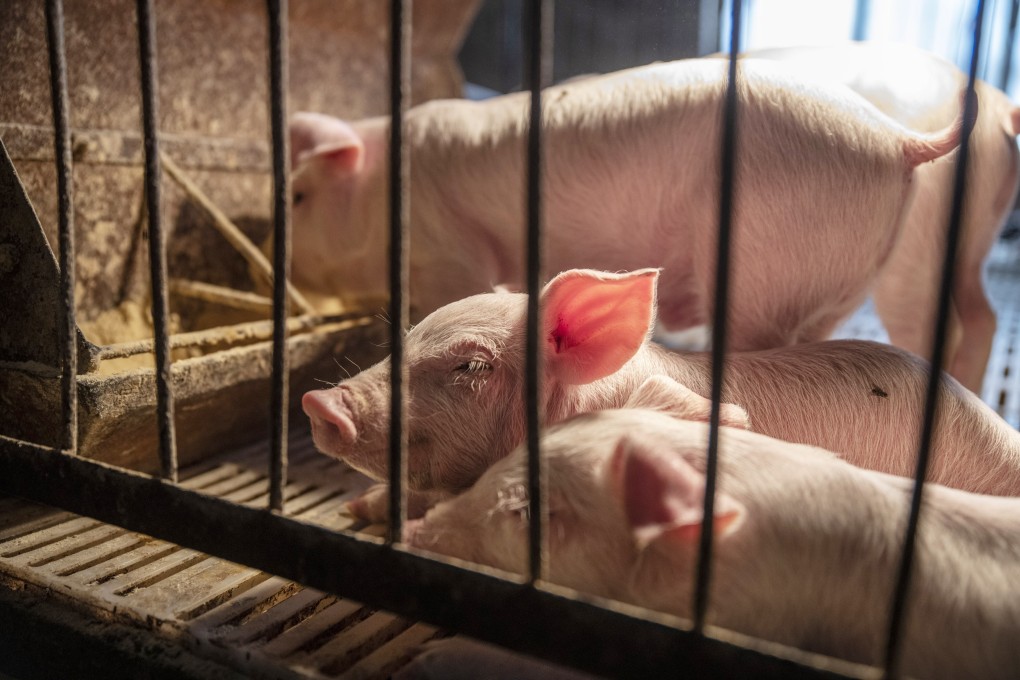Pigs can be infected with coronavirus, Canadian-US study finds
- Findings challenge conclusions from previous research that swine could not contract the pathogen that causes Covid-19
- Investigation prompted by similarities between key protein receptor in pig and human cells

A Canadian government study has concluded that pigs can be infected with the coronavirus, challenging previous findings on the pathogen’s reach.
“[This study] provides evidence [that] live Sars-CoV-2 virus can persist in swine for at least 13 days,” the researchers led by Brad Pickering from the Canadian Food Inspection Agency in Winnipeg, Manitoba, said in the paper posted in bioRxiv.org.
The paper comes four months after Chen Hualan, from the Harbin Veterinary Research Institute in northeastern China, reported that a large-scale experiment involving various domestic animals indicated that pigs could not contract Sars-CoV-2.
Chen’s results were published in the journal Science in May, and bolstered by research in the journal The Lancet Microbe in July by Martin Beer from Germany’s Friedrich-Loeffler-Institut.

06:14
Countries that haven't reported a single case of Covid-19 are still hit hard by the pandemic
But Pickering and his collaborators at Iowa State University in the US embarked on their own study after computer modelling suggested that there was a more than 80 per cent similarity between a particular receptor protein in humans and pigs.